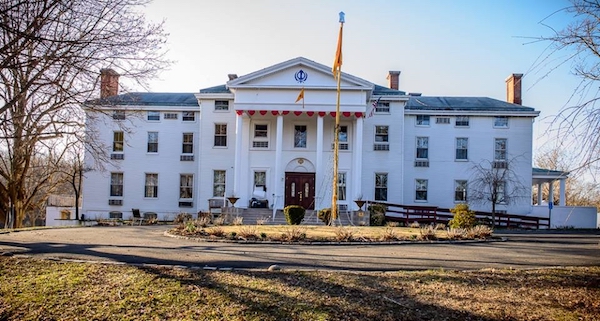Just days ago, Gurduara Glencove held not one but two meetings of the general body on the same day, Sunday; the second meeting immediately followed the first.
Believe me, this incredible matter is not a typographical oversight or slip. It is absolutely true. It is important to note that despite Constitutional requirements for periodic meetings no general meeting had been held for many years.
It is not that people did not want any meetings but their earlier requests – and there were several — were summarily ignored or rebuffed. And now there were two, on the same day, one directly on the heels of the other.
Clearly, the state of the Gurduara at Glencove is not as it ought to be, and that’s the most charitable way that I can put it. The divisions are sharp and hard edged.
Of the two meetings, the first was run and controlled by the existing management of the gurduara and reluctantly held in response to the continuous wish of a sizeable segment of the community. The second meeting held by members of the sangat followed minutes after the first concluded was by members of sangat. It is important to note that no member of the management attended the second meeting.
This short note today is not to castigate or scold either side but to focus a lens on fundamental premises and logic that were pushed and highlighted by the existing management to justify their atrocious reasoning and decision making.
Now for my two cents worth on the mess:
Via a letter the current management dismissed the sangat’s right to a meeting as both irrelevant and contrary to any legal requirements. Their rationale almost took my breath away. They attached a letter framed by their lawyers. It appeared to assert that since no general body meeting had been held for several years, the sangat had obviously abrogated its rights, if any, to a meeting. Hence none was necessary, and none may be held.
With me others, too, will find such reasoning absolutely untenable, if not atrocious. Why?
Think a moment: The British ruled India for about 200 years (and Punjab for about one century). Could one argue that since, for much of the time, Indians did not unceasingly and single mindedly ask for independence, they had lost their right to demand it any further? Or look at our new home – The United States: For centuries racial discrimination was legal and widely practiced. Women’s rights were severely curtailed. For instance, women did not have the right to vote until 1920, 150 years after the country was founded. Should they have been told that since they accepted the reality for so long, they no longer had the option to protest or demand a change? Every day now, discriminatory practices that existed for centuries are giving way to changing realities and new attitudes and much still needs attention. For example, until about 40 years ago women were accepted into medical schools in the United States with great difficulty, if at all. Now that’s no reason to continue to curtail their rights.
I also offer you a potent example of what I would term atrocious reasoning that surfaced at the meeting by the current management that I am alluding to. The Chairman, Maninder Singh Sethi, offered that he would embrace the idea of retiring from his position at the gurduara’s helm but was determined to stay in command until he could identify a suitable person to whom he would hand the reins and control.
I confess that I am absolutely shocked and flabbergasted. Words almost fail me. The gurduara is an institution, not private property for which any one individual, no matter, how brave, honest, wise, dedicated, capable or respected can appoint or anoint a successor. Good institutions are governed by procedures, principles, priorities, practices and the shareholders that live and die for them.
The sangat and the membership constitute the shareholders of a gurduara. A respected leader deserves reverence, and respect, but never absolute dictatorial control.
Mr. Chairman: This is absolutely not your prerogative, nor that of any one person. The least you can do is to assure the people that this was never your intent and that you misspoke. The decision rests with the sangat.
A gurduara is not to be used to divide the world into friends and foes but to see if we can transform them into allies and collaborators.
